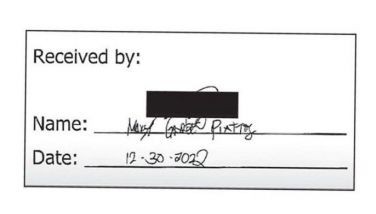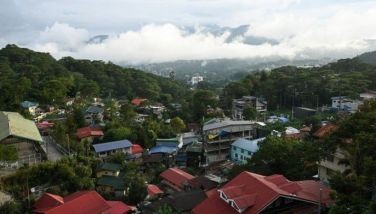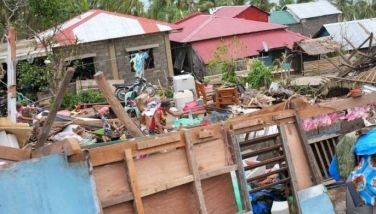Goverment hits Japan travel advisory
October 18, 2001 | 12:00am
The Arroyo government deplored yesterday an order issued by the Japanese government advising its citizens against traveling to the Philippines.
The protest was raised even as Tokyo maintained that the travel advisory stays.
Presidential Spokesman Rigoberto Tiglao rued that the Japanese government lumped the Philippines with radical Muslim countries such as Afghanistan, Pakistan and Iraq, which have been classified as Level 2 category calling for a total travel ban.
For its part, the Department of Foreign Affairs (DFA) sent a protest note to the Japanese Embassy in Manila expressing the government’s displeasure over the controversial advisory.
Tiglao argued that unlike Afghanistan, Pakistan and Iraq that are Muslim-dominated, the Philippines is predominantly a Catholic country.
"We really cannot understand it (travel ban). There is no explanation to this announcement, but the Philippines was just lumped up with those Muslim-dominated countries," Tiglao stressed.
Japan’s travel ban came two weeks after Malacañang took issue with a similar directive from Washington enjoining US citizens to avoid going to the Philippines.
But unlike the case of the US travel ban where US Embassy officials led by charge d’ affaires Robert Fitts were invited to Malacañang, Tiglao said the Palace has no plan to ask the Japanese Embassy to clarify the issue.
Tiglao said under Japanese laws, government officials are held accountable if any of their nationals fall victim to criminal elements due to the absence of an appropriate advisory.
Tiglao said Tourism Secretary Richard Gordon was spearheading representations with the Japanese government regarding the travel ban.
Tiglao also cited a report by Gordon saying about 100 Japanese women visited the Philippines two weeks ago.
In its note verbale, the DFA asserted that the travel ban issued by Tokyo would adversely affect the Philippine tourism industry. – Marichu Villanueva, Pia Lee-Brago
The protest was raised even as Tokyo maintained that the travel advisory stays.
Presidential Spokesman Rigoberto Tiglao rued that the Japanese government lumped the Philippines with radical Muslim countries such as Afghanistan, Pakistan and Iraq, which have been classified as Level 2 category calling for a total travel ban.
For its part, the Department of Foreign Affairs (DFA) sent a protest note to the Japanese Embassy in Manila expressing the government’s displeasure over the controversial advisory.
Tiglao argued that unlike Afghanistan, Pakistan and Iraq that are Muslim-dominated, the Philippines is predominantly a Catholic country.
"We really cannot understand it (travel ban). There is no explanation to this announcement, but the Philippines was just lumped up with those Muslim-dominated countries," Tiglao stressed.
Japan’s travel ban came two weeks after Malacañang took issue with a similar directive from Washington enjoining US citizens to avoid going to the Philippines.
But unlike the case of the US travel ban where US Embassy officials led by charge d’ affaires Robert Fitts were invited to Malacañang, Tiglao said the Palace has no plan to ask the Japanese Embassy to clarify the issue.
Tiglao said under Japanese laws, government officials are held accountable if any of their nationals fall victim to criminal elements due to the absence of an appropriate advisory.
Tiglao said Tourism Secretary Richard Gordon was spearheading representations with the Japanese government regarding the travel ban.
Tiglao also cited a report by Gordon saying about 100 Japanese women visited the Philippines two weeks ago.
In its note verbale, the DFA asserted that the travel ban issued by Tokyo would adversely affect the Philippine tourism industry. – Marichu Villanueva, Pia Lee-Brago
BrandSpace Articles
<
>
- Latest
- Trending
Trending
Latest
Trending
Latest
Recommended




























